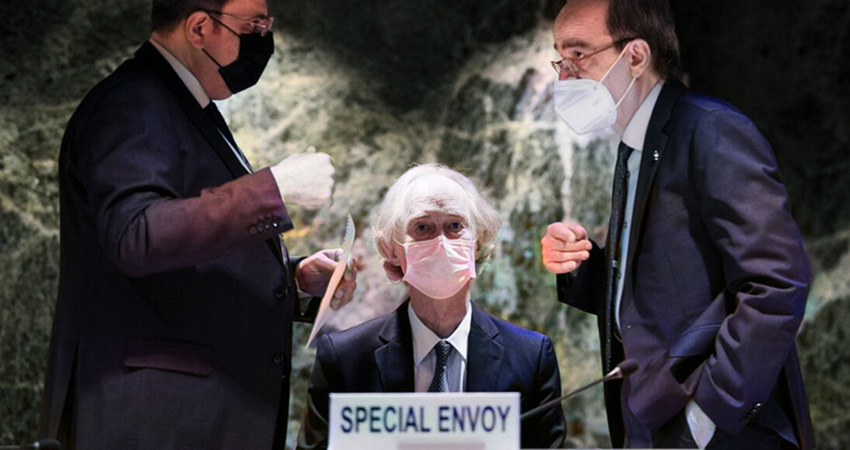Syrians for Truth and Justice, with the support of the National Endowment for Democracy, organized consultations and documented the perspectives of over 80 Syrian civil society representatives, activists, and civilians in Northeastern and Northwestern Syria on topics related to the constitution-building in Syria.
To share the results of our consultations in Syria, STJ is publishing this report as the fourth of a series of five exploring the following topics:
- The Formation and Responsibilities of the Syrian Constitutional Committee
- Inclusivity and Diversity
- Transitional Justice
- Governance and Judicial Systems
- Socio-Ecological Justice and Personal Experiences
A successful Syrian peace-building process requires mechanisms to bring the conflict to an end as well as mechanisms to ensure the conflict does not recur. Structural reforms written into a new or amended constitution are a vital tool for strengthening governance structures. These reforms include detailing a cohesive policy on the workings and creation of special and exceptional courts[1], ensuring guarantees for an independent judiciary, and eliminating room for impunity in security structures. Outlining fair and neutral governance structures in the constitution can both stabilize a post-war Syria and legitimize the constitution, thereby ensuring that the constitution will be respected as more than merely a declaration of principles.[2]
During the amendment of the last Syrian constitution in 2012, official structures were neither instituted before nor after the constitution’s implementation to incorporate opposing views. In a country already divided by war in 2012, without these official structures in place, a free and fair referendum was impossible. As a result, the 2012 Syrian constitution failed to both address the needs of diverse groups across the country and inspire confidence that the principles included within acted beyond words. As the Syrian Constitutional Committee moves forward to write or amend a new Syrian constitution, official structures outlined in the constitution must be independent, protected, and free from political or power dimensions within the country to ensure that this constitution succeeds in establishing both confidence and stability where its 2012 predecessor failed.[3]
The following report explores the possible systemic changes that can take place because of the new or amended Syrian constitution by considering the perspective of Syrians from minority communities who feel unheard. They voice their opinions on how they want governance and justice systems structured moving forward, the role religion will play in constitutional and legal systems, and how an independent and impartial judiciary should be organized and governed. Incorporating their insight on governance structures functions as a crucial step in creating a constitution established on the people’s consent.
Governance Systems
During the consultations, we offered our participants a set of different governance systems to choose from. The majority (67.9%) leaned towards a parliamentary system, 9.5% towards a parliamentary-presidential system, and 10.7% towards a presidential system. Throughout the years multiple actors[4] suggested and discussed a federal system, highlighting a fair and inclusive power distribution among the different regions. The participants were divided on what a possible federal system would look like, of which 40.5% opted for a complete federal system. Only 10.7% or our respondents were in favour of adopting administrative decentralization, whereas the participants to the Day after Project demonstrated the desire for adopting such a political system with 42.4%. The discrepancy between these answers to a possible administrative decentralization might have to do with the different demographics of both respondent groups.
To read the report in full as a PDF, follow this link.
____
[1] Special courts represent long lasting courts, such as military courts, and the exceptional courts represent temporary ones, such as terrorism courts.
[2] Gendered Constitution Building Process for Syria, The Coalition of Syrian Women for Democracy (CSWD), 2014
[3] I.e.the Universal Declaration on the Judiciary Independence and the Basic Principles on the Judiciary Independence of the United Nations, OHCHR
[4] Which Constitution Does Syria Need?, The Day After, 2018 ; Constitution building after conflict: External Support to a Sovereign Process, IDEA, 2011 ; Syria’s Transition Governance & Constitutional Options, Under U.N. Security Council Resolution 2254, The Carter Center, 2016 ; The question of religion in the Syrian Constitutions: historical and comparative review, Turkmani, Rim and Draji, Ibraim, LSE, 2019

